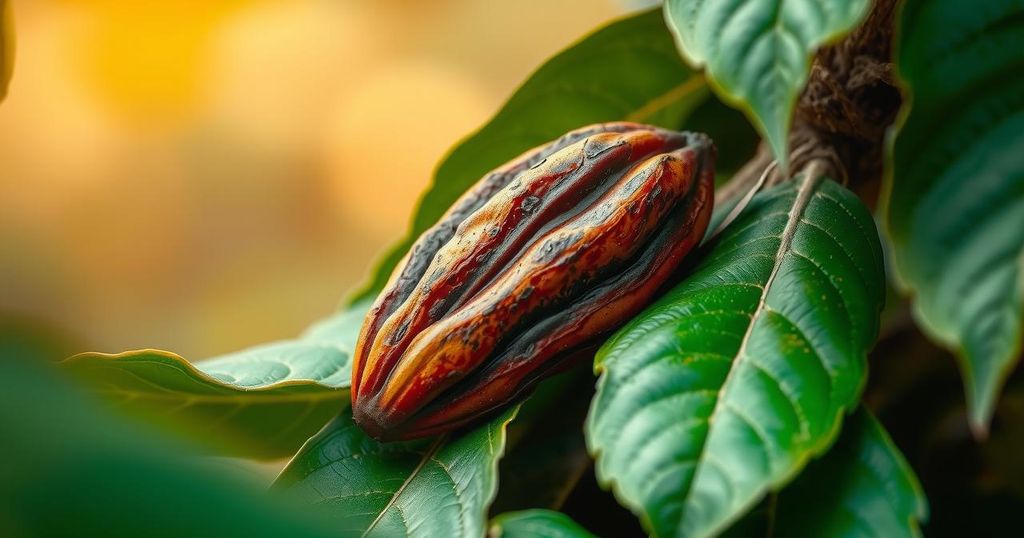Impact of Climate Change on Global Cocoa Production and Prices

Climate change is severely impacting cocoa production in West Africa, where farmers face increasing temperatures and erratic rainfall. A study by Climate Central indicates that rising heat has contributed to falling cocoa yields, leading to skyrocketing prices. Industry experts warn of an existential threat to cacao due to ongoing environmental changes, calling for urgent collective action.
A recent study highlights the detrimental effects of climate change on cocoa production, particularly in West African nations, which supply about 70 percent of the world’s cacao. Researchers reported that increased temperatures due to climate change have led to poor harvests and soaring cocoa prices. The study, conducted by Climate Central, reveals that excessive heat and unpredictable rainfall patterns have become prevalent, severely impacting cacao trees in Ivory Coast and Ghana.
The research found that climate change, driven by fossil fuel emissions, is causing more frequent temperatures exceeding 32 degrees Celsius, which are detrimental to cacao cultivation. Over the past decade, these extreme heat conditions have increased by approximately three weeks during the growing season from October to March in major cacao-producing regions. In 2022, the hottest year on record, many areas reported temperatures above this threshold on at least 42 days.
Additional factors, including pest infestations and shifting rainfall patterns, further threaten cacao yields. A separate report by Christian Aid emphasized the precarious situation of cacao farmers in West Africa amidst changing weather patterns, noting the abrupt shifts from flooding to drought conditions. “Growing cocoa is a vital livelihood for many of the poorest people around the world and human-caused climate change is putting that under serious threat,” remarked Osai Ojigho, Director of Christian Aid’s policy and public campaigns.
The resulting crop failures have driven a dramatic increase in cocoa prices. Recently, prices on markets in London and New York have soared, with New York cocoa reaching over $10,000 per tonne. This price level is significantly higher than the historical range of $2,000 to $3,000 per tonne, leading companies like Lindt & Spruengli to raise prices in response to increased cocoa costs.
Narcisa Pricope, a professor at Mississippi State University, cautioned that cacao production faces an existential threat due to prolonged dry conditions. Her research indicates that over three-quarters of the Earth’s land has been drying out over the past three decades, largely due to greenhouse gas emissions. She emphasized that collective action is imperative, stating, “Collective action against aridity isn’t just about saving chocolate – it is about preserving the planet’s capacity to sustain life.”
The study underscores the urgent challenges that climate change presents to cacao production, particularly in West Africa. Rising temperatures and extreme weather patterns are damaging crop yields and causing cocoa prices to surge. It is crucial to address these environmental issues not only to protect chocolate production but also to sustain livelihoods dependent on cocoa cultivation.
Original Source: www.sciencealert.com







